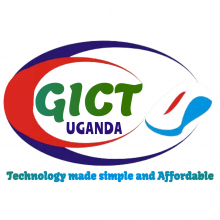
There are 3 Companies in Uganda
that provide Conference Related Services!
Uganda’s IT Services market is predicted to reach UGX US$335.98m in 2025, with a CAGR 2025-2030 of 8.48%. The IT Outsourcing segment accounts for the vast majority of this, at around UGX US$123.71m in 2025. Other important contributors are broadcasting, data center services, cloud, IT, and BPO.
Discover Top IT Companies in Uganda specialized in Conferences and other related services. Find the best IT service providers for your projects.
Conference services are all about making meetings and events go smoothly. They help people connect, communicate, and collaborate, whether it's a big corporate event or a small team meeting.
Handpicked companies • No obligation to hire • 100% risk-free
Explore Top Conference Related Companies in Uganda
The companies Company
Flex your Brand
Services:
GICT AFRICA TECHNOLOGIES is a leading Software development, website design and hosting company in Uganda The Mobile Apps and Software that we develop
Filter Conference Related Companies in Uganda by Cities
Find the right tech company near you or from a specific city. Some of the best companies might be located in smaller cities.
Find more Conference Related companies around the world
TechBehemoths is the world's most advanced and user-friendly platform to match IT Companies with real clients without hustle.
The IT Industry in Uganda: General Portrait
Uganda’s IT Services market is predicted to reach UGX US$335.98m in 2025, with a CAGR 2025-2030 of 8.48%. The IT Outsourcing segment accounts for the vast majority of this, at around UGX US$123.71m in 2025. Other important contributors are broadcasting, data center services, cloud, IT, and BPO.
Uganda’s combination of relatively stable governance, strategic location, and young and innovative population has made it an attractive destination for multinational companies. Several notable firms, such as Google, Microsoft, and SAP, have offices in Kampala, and some have based their entire African operations from these offices.
Why You Should Work With Ugandan IT Companies
Digital service providers in the cloud and BPO markets are primarily involved in the provision, rather than the development, of services, whereas Ugandan firms are more prevalent in the fintech and e-commerce markets. The physical technology required for the delivery of digital services is typically imported, and it is not clear that Uganda could produce these products more efficiently.
A key strength in the digital services market is the acceptance of mobile services. Any consumer solution entering the market would have to be mobile-compatible. Mobile healthcare services are expected to grow particularly rapidly as the sophistication of these offerings increases.
What to Pay Attention to When Working With Ugandan IT Companies And Web Agencies
On the consumer side, it is vital that any proposed digital service offering be mobile-compatible due to the prevalence of mobile usage in Uganda. Furthermore, smartphone penetration in the region is steadily increasing, thus increasing the sophistication of viable digital service offerings.
Given the acceptance of fintech by the Ugandan population, a possible route to entry in the consumer market is to acquire one of the many smaller fintech firms in the industry. This would resolve some of the primary barriers to entry, most specifically bureaucratic red tape and a lack of local knowledge.
On the corporate side, the most effective route to entry is likely through partnerships with smaller local resellers. This model is already popular in the Ugandan market. A key differentiating feature here will be how well the service adapts to the Ugandan market.
How Reliable Are Ugandan-based IT Companies?
Considered to be one of the biggest African IT hubs, Ugandan web agencies and IT companies compete only with Ethiopian ones in terms of reliability. As many foreign companies have already invested and thus developed the local IT infrastructure and industry overall, Ugandan IT companies find it easier than other neighboring countries to enter the global market and provide their services at accessible prices.
How Does the Ugandan IT Industry Relate to the Neighboring Countries?
Uganda is actively trying to establish itself as a key ICT hub in the East African region. The country appears to be making good progress in this regard, helped by having a strong connectivity infrastructure and a young, innovative population. Despite this, the country currently faces considerable political uncertainty, and issues surrounding the transparency of tenders remain a major barrier to growth.
Although Uganda’s score for the metric measuring the economic impact of ICT is not high in absolute terms, it ranks 54th in the world. This supports the conjecture that businesses, government, and consumers will be receptive to new technologies, as ICT has already had a substantial impact on the Ugandan economy.
How will ICT Impact Uganda in 2025?
Uganda has lost one of the telecom investors and operators on the market, Africell. The change has an immediate effect on the labor market and telecom industry. The reasons behind leaving Uganda are in limited possibilities the country offers to the telecom operator. For Uganda, 2022 is a challenging year in ICT, with a low internet penetration rate, tech education, and competitiveness.
In 2025, the ICT in Uganda has a goal of becoming a digitally driven society in the economic and public services sectors. The government implemented the Digital Transformation Roadmap (2024-2028) with a focus on digital agriculture, mHealth solutions, youth skilling, and scaling Uganda’s BPO sector, leading to more jobs and unlocking economic resilience.
What is Conferences and what are its benefits for your projects?
Conference services are all about making meetings and events go smoothly. They help people connect, communicate, and collaborate, whether it's a big corporate event or a small team meeting.
More than 177 verified IT companies specialize in offering conference services. These companies create software and solutions that enable virtual meetings, webinars, and conferences. Some well-known IT companies providing conference services include Zoom, Microsoft, and Cisco.
Conference service providers use a mix of tools and technologies to make virtual meetings and events happen. They rely on video conferencing software, like Zoom or Microsoft Teams, along with hardware like cameras and microphones. Cloud computing and internet infrastructure are essential to ensure smooth and reliable connections during conferences.
Conference services are often part of a broader set of services related to communication and collaboration. These services include:
-
Webinars: Hosting online seminars or presentations for a large audience.
-
Event Management: Handling all aspects of event planning, from registration to post-event analysis.
-
Video Streaming: Broadcasting live events to a global audience.
-
Collaboration Tools: Platforms that facilitate teamwork and document sharing.
-
Virtual Reality (VR) Meetings: Immersive experiences for remote collaboration.
To choose the best IT company for conference services, consider factors like the ease of use of their software, the number of participants supported, security features, and customer support. Read reviews, ask for recommendations, and test the services to see which one suits your needs best.
Conference service providers are essential for various projects, including:
-
Business Meetings: Facilitating team meetings, client presentations, and board meetings.
-
Educational Webinars: Hosting online classes, workshops, and training sessions.
-
Virtual Conferences: Running large-scale industry events with multiple sessions and speakers.
-
Healthcare Telemedicine: Enabling remote patient consultations and medical conferences.
-
Product Launches: Introducing new products or services to a global audience.
-
International Collaboration: Facilitating communication between teams or partners in different locations.


